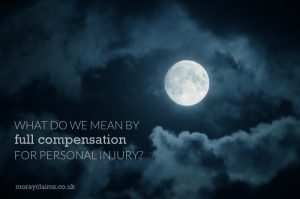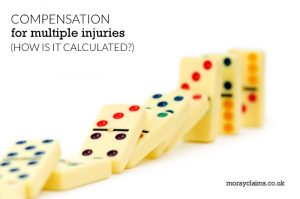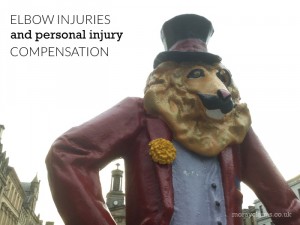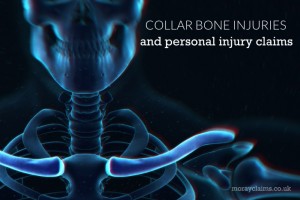My all-time favourite cartoon characters are probably Calvin and Hobbes. Calvin is a young boy of about 6 years of age. To everyone else in the stories, Hobbes is Calvin's stuffed toy tiger. But, to Calvin, Hobbes is his walking, talking best friend – caught by means of a tiger trap baited with a tuna sandwich - who shares all his adventures. Many of these involve stressing out his long-suffering parents. Calvin is precocious in some ways but naive in others. The father of the creator of Calvin and Hobbes, Bill Watterson, was a lawyer. In the cartoon, Calvin's Dad is also a lawyer. I don't have a son called Calvin but we did call one of our cats 'Hobbes'. One comic strip has Calvin sitting, surrounded by what appear to be pots of glue and plaster. He is holding out a baby tooth that has just come out of his mouth. "Mom says the tooth fairy might give me 50 cents for this tooth," he tells Hobbes. "Wow!" replies Hobbes. "So I got an idea," continues Calvin. "I Continue Reading
Compensation for Multiple Injuries (How it’s calculated)
On 24 July 2017, the Boston Globe newspaper reported something which it appears came as a surprise to many people. Some had suspected the truth they exposed in their article, but not many. The subject was pedestrian crossings at busy road intersections. If you needed to cross the road, for example, in downtown Boston, you would press the “walk” button and wait patiently for the lights to change. Your assumption was that you set in motion an electronic process which reduced the time you would have to wait to get your opportunity to cross. As it turned out, however, this was an illusion. The buttons had been disabled. Pedestrians always had to wait a predetermined amount of time within the cycle of the lights. A spokesperson on behalf of the city of Boston explained that downtown was too congested with pedestrians and cars to allow any single person to influence the traffic lights’ cycle. This did not surprise everyone: one resident, who had suspected the buttons were Continue Reading
Claiming Compensation for Elbow Injuries in Scotland
The band, Elbow, reportedly got their name because of evidence that it is “the loveliest word in the English language”. The Singing Detective by Dennis Potter was a BBC television drama, which first aired in 1986. Mystery writer, Philip E. Marlow, is the main character. Through the pain of his skin condition, psoriatic arthropathy, and the associated fever, Marlow’s imagination runs riot while he is hospitalised with lesions and sores over his whole body – and he comes up with this escapist adventure about a detective. According to Marlow, in a scene from The Singing Detective, “E-L-B-O-W” is the loveliest word not only because of the sound it makes in the mouth but also because of the shape it makes on the page. The elbow joint is something which adds to the distinctive shape of the human body. A reasonable amount of twisting of the lower arm is made possible by the design of the elbow joint. Also, our ability to move the forearm and hand towards and away from the body Continue Reading
Collar Bone Injuries and Personal Injury Claims
According to Guinness World Records, some of the records broken most often include: Most apples dooked in one minute; Longest DJ Marathon; and Heaviest item lifted on the strength of glue alone. They mention that another frequently-broken record is that of Oldest living person – though the oldest recorded person ever remains French supercentenarian, Jeanne Louise Calment, who was 122 years and 164 days old when she died in 1997. If you look for discussion about the issue of “world records which are broken most often” on internet forums, “world’s youngest person” comes up a lot – that’s one we all held at one point, however briefly. The question “what gets broken most frequently?” comes up in relation to bony injuries when we’re looking at personal injury claims. Which bone in the human body is most likely to get broken? One serious contender for most-commonly-broken-bone is the collar bone or clavicle. In this article, we will take three angles on the collar Continue Reading



